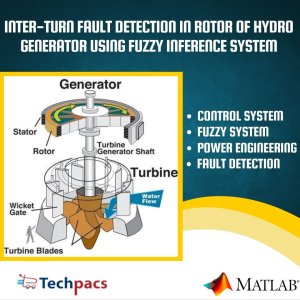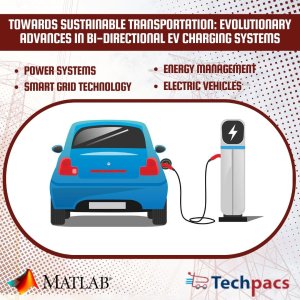Preventing Hydro Power-Generator Outages through AI-Based Fuzzy Logic Control
Problem Definition
The power generation systems in hydroelectric plants are essential for providing electricity to communities, industries, and homes. However, the reliance on Optical Fiber Cables (OFC) for communication between the Power House and Valve House poses a significant limitation. The underground water conducting system makes it impossible to visually detect faults, leading to challenges in identifying and rectifying issues in a timely manner. The potential damage to the optical link due to forest fires or other environmental factors can result in data loss, leading to plant outages, cost constraints, machine tripping, and generation loss. This not only interrupts the supply of electricity but also leads to unnecessary expenses and inefficiencies in the system.
It is imperative to find an alternative approach that minimizes the need for extensive alterations, addresses the vulnerability of the OFC link, and ensures the continuous operation of the hydro generator to prevent wasteful generation loss. A robust solution is required to prevent pseudo-tripping and ensure the reliability and efficiency of the power generation systems in hydroelectric plants.
Objective
The objective of the proposed project is to implement a fuzzy interface system in hydro generators to prevent unnecessary generation loss caused by pseudo-tripping. By utilizing artificial intelligence and fuzzy logic, the system aims to detect faults in the hydraulic power system and prevent machine tripping due to faults in the optical link. The integration of a fuzzy inference system that processes input data on flow and pressure through predefined rules will provide a more efficient and accurate method of fault detection, ultimately ensuring the continuous operation of the hydro generator and minimizing generation loss. This approach, which mimics human decision-making processes, presents a promising solution to the challenges faced in the power generation systems of hydroelectric plants.
Proposed Work
The proposed project aims to address the issue of pseudo-tripping in hydro generators by implementing a fuzzy interface system that can prevent unnecessary generation loss. By utilizing artificial intelligence and fuzzy logic, the model will be able to detect any faults in the hydraulic power system and prevent machine tripping due to faults in the optical link. The approach involves integrating a fuzzy inference system that takes input data on flow and pressure, processes it through predefined rules, and outputs the status of the valve in the system. This approach offers a more efficient and accurate method of detecting faults and preventing downtime in the power generation system.
The rationale behind choosing a fuzzy logic controller for this project stems from its ability to mimic human decision-making processes and adapt effectively to changing conditions.
By utilizing the knowledge and expertise of humans in developing the control system, the fuzzy logic controller can effectively analyze the data inputs and make decisions on the valve status. The simplicity of the IF-THEN rules in fuzzy control laws makes it a suitable choice for this application, allowing for the generation of accurate and reliable results. Overall, the integration of artificial intelligence and fuzzy logic in the proposed model presents a promising solution to the problem of pseudo-tripping in hydro generators, ultimately reducing generation loss and improving overall system efficiency.
Application Area for Industry
This project can be used in the power generation industry, specifically in hydroelectric power plants. The proposed AI-based model with a fuzzy logic controller can help to detect faults in the power generation systems, particularly in the valve status. By using this approach, the system can identify any loss in pressure, decline in flow rate, or sudden increase in pressure caused by machine starting or stopping, thus preventing machine pseudo-tripping and generation loss. Implementing this solution in hydroelectric power systems can lead to increased operational efficiency, reduced downtime, and improved overall plant performance. Additionally, the use of AI and fuzzy logic can provide a more reliable and accurate method for monitoring and controlling the valve status, ultimately helping to prevent potential faults and ensuring continuous power generation.
Application Area for Academics
The proposed project can greatly enrich academic research, education, and training by introducing innovative research methods in the field of hydroelectric power generation systems. By integrating artificial intelligence, specifically fuzzy logic, into the detection of faults in power generation systems, researchers can explore new avenues for improving the efficiency and reliability of hydroelectric power plants. This project has the potential to provide a practical solution to the challenge of detecting faults in underground water conducting systems through the use of Optical Fiber Cable (OFC).
In terms of education and training, this project can offer valuable insights into the application of AI in real-world systems, particularly in the context of hydroelectric power plants. Students pursuing a Master's or PhD in engineering or related fields can benefit from studying the code and literature of this project, gaining a deeper understanding of fuzzy logic and its potential applications in fault detection and control systems.
By engaging with this project, students can develop practical skills in data analysis, simulations, and innovative research methods that are relevant to the energy sector.
Furthermore, the project's focus on preventing plant outage, cost constraints, and generation loss in hydroelectric power systems can have significant implications for industry practitioners and researchers in the field of power generation. By implementing the proposed fuzzy inference system, professionals can enhance the performance and reliability of power plants, ultimately contributing to the sustainable development of clean energy sources.
In terms of future scope, researchers can explore the integration of other AI techniques, such as neural networks or machine learning algorithms, to further enhance the fault detection capabilities of hydroelectric power systems. Additionally, the project's framework can be extended to other domains within the energy sector, opening up new opportunities for interdisciplinary research and collaboration.
Overall, this project has the potential to advance academic research, education, and training in the field of energy systems and inspire further innovation in the integration of AI technologies for sustainable energy generation.
Algorithms Used
Fuzzy logic is used in the project to develop an artificial intelligence-based model for detecting whether a valve is open or closed in a power plant. The fuzzy logic controller in the proposed model is able to detect loss in pressure, decline in flow rate, and sudden increases in pressure caused by machine starting or stopping. By utilizing fuzzy logic, the model serves as an additional signaling source for identifying valve status, helping to prevent machine pseudo-tripping and generation loss. The fuzzy inference system in the proposed model takes Flow and Pressure as inputs, processes them using Mamdani-type fuzzy system and four defined rules, and generates a single output representing the valve status. This approach leverages human knowledge and experience to develop effective control laws using fuzzy logic, making it a valuable addition to the project's objectives.
Keywords
SEO-optimized keywords: artificial intelligence, fuzzy logic controller, valve status detection, hydro generator, generation loss prevention, flow rate analysis, pressure monitoring, OFC cable signal, fault detection system, energy efficiency improvement, industrial automation, process control, power generation technology, hydroelectric power plant management, energy management system, control systems optimization, monitoring and control mechanisms, efficiency improvement techniques.
SEO Tags
Fuzzy Interface System, Hydro Generator, Pseudo-Tripping Prevention, Generation Loss, Flow Rate, Pressure, OFC Cable Signal, Valve Status Detection, Alarm System, Fault Detection, Energy Efficiency, Industrial Automation, Process Control, Power Generation, Hydroelectric Power Plant, Energy Management, Control Systems, Monitoring and Control, Efficiency Improvement
| Shipping Cost |
|
No reviews found!

















































No comments found for this product. Be the first to comment!